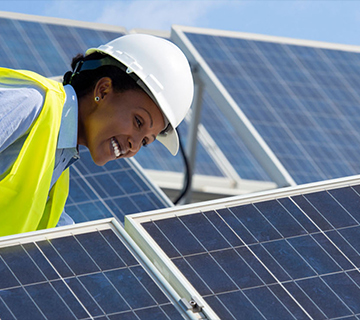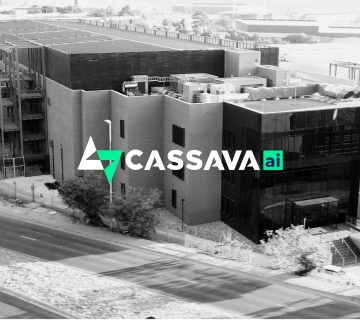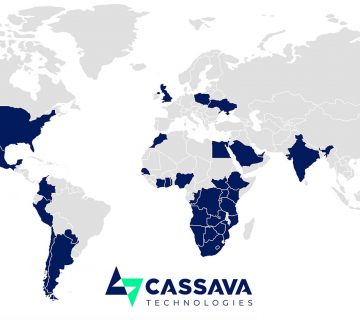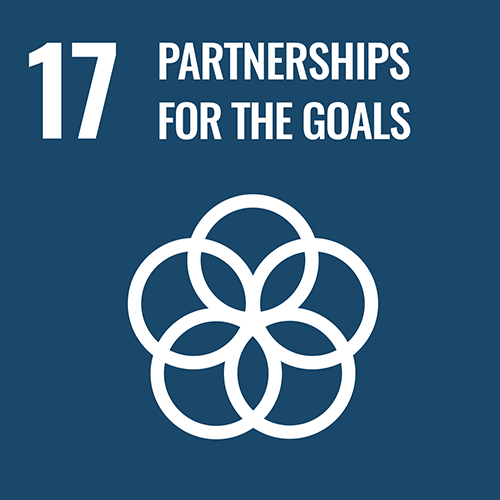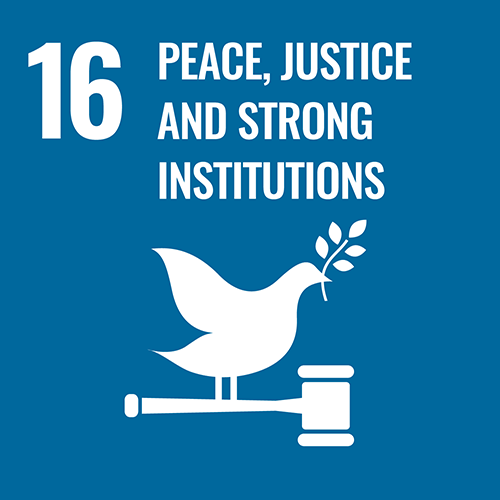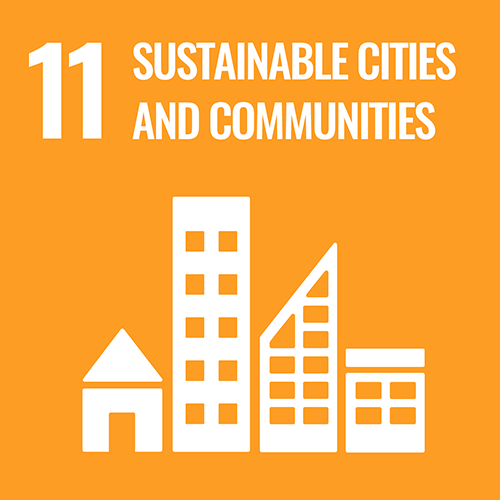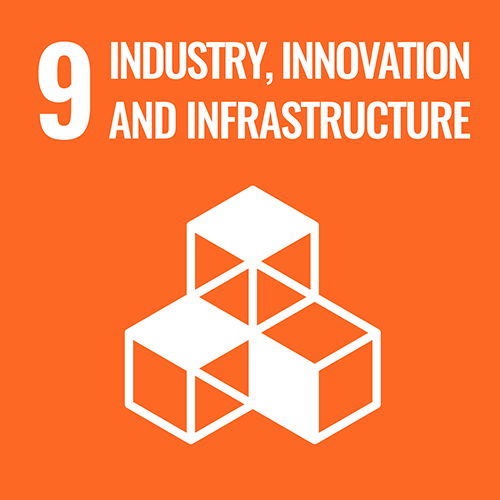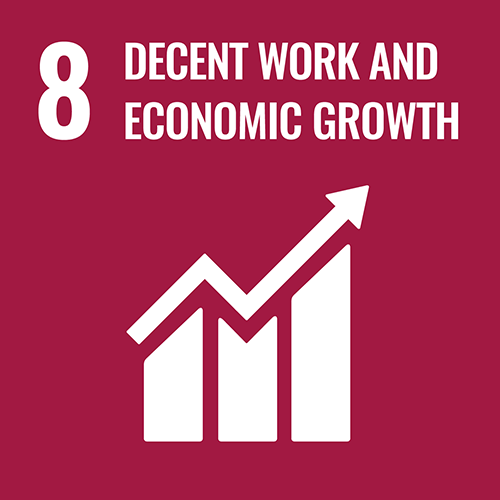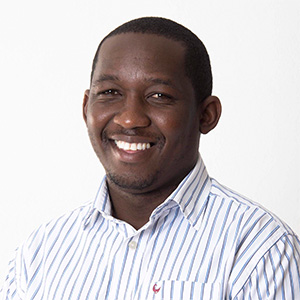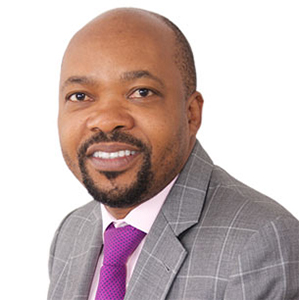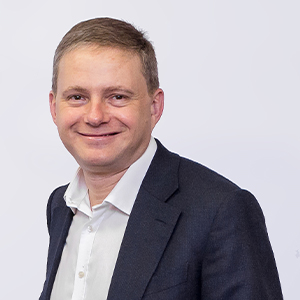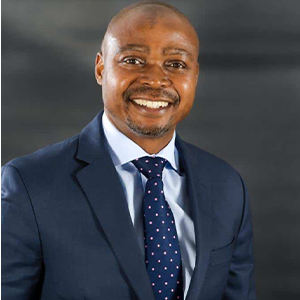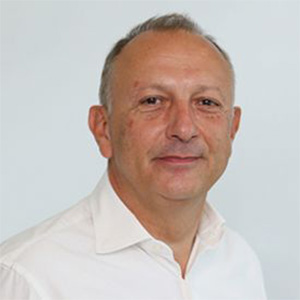Africa Data Centres (ADC) has announced that sister company Distributed Power Technologies (DPT) will develop a 10MWp solar PV power plant for its Cape Town facility and another unit for its new Lagos data centre. The companies are both subsidiaries of Cassava Technologies, a Mauritius-based digital services and infrastructure firm launched in November by pan-African telecoms giant Econet. Cassava provides internet access for 500m people and digital services for 1m firms.
ADC operates data centres in Johannesburg, Cape Town, Nairobi and Lagos and in November announced a $500m expansion of its South African sites. It plans to open ten more centres across the continent in the next two years, including in Nigeria, Kenya, Morocco and Egypt.
DPT chief executive Norman Moyo told African Energy that DPT will “follow ADC’s footprint across the continent”. DPT’s 1.2MWp solar PV plant at ADC’s East Africa data centre in Nairobi, the first stage of which was commissioned in 2019, is also in the process of being expanded to 3MWp.
The Cape Town plant will comprise an off-site solar PV farm that will wheel electricity via state utility Eskom’s grid. Such projects are now viable after South Africa in June raised the capacity threshold for power generation licences from 1MW to 100MW, in a move that has particularly benefitted commercial and industrial (C&I) developers (AE 441/13).
Moyo said these “meritocratic developments in the regulatory framework” have greatly eased doing business in the power sector. Acquiring approval from National Energy Regulator of South Africa (Nersa) was no obstacle even for larger projects, he said. There was now a “structure” in place to facilitate C&I projects, especially if off-site plants were built on Eskom sites and wheel power into areas where Eskom provides distribution.
Moyo noted that acquiring the wheeling permissions could prove more difficult in areas where municipalities control the distribution system. DPT has been able to secure permission in Cape Town and he said other municipalities “are beginning to open up” on account of South Africa’s electricity supply crisis. Moyo said the government had “laid out the red carpet for distributed energy providers to improve energy security and South Africa’s carbon footprint”.
DPT is building the Cape Town plant under its ‘energy as a service’ model that does not require the offtaker to provide finance or capex. It will be developed on the basis of a 20-year power purchase agreement (PPA). A competitive bidding process is under way for the engineering, procurement and construction contract. Moyo said construction was expected to start “around April” and take approximately six to nine months, allowing for possible Covid-19-related restrictions and supply chain challenges. Financial close is expected within months.
Promoting carbon neutrality
DPT (formerly Distributed Power Africa) entered the commercial and industrial market in 2017. In 2019, it signed a strategic C&I partnership with Électricité de France (EDF) as a technology partner and an equity partner “in certain markets”.
DPT completed a 1MWp rooftop solar PV plant for Schweppes Zimbabwe in December 2019; at the time this was the largest rooftop C&I plant in southern Africa outside South Africa (AE 406/7). That year it also commissioned the first stage of the solar PV system at ADC’s Nairobi unit. In September 2020 it commissioned a 1.8MWp solar PV plant at Tanganda Tea’s Ratelshoek estate in Zimbabwe (AE 447/17).
DPT also builds ‘behind the meter’ embedded plants, such as the soon-to-be-completed 1.2MWp solar PV plant at ADC’s Midrand site in Johannesburg. However, these embedded plants are not suitable for all sites, Moyo said, as most data centre buildings do not have enough space on roofs or carports to install sufficient PV cells to meet the power demand.
Moyo said DPT’s customers are placing more emphasis on becoming carbon neutral. This is often driven by investors, who are increasingly anxious to meet environmental, social and corporate governance (ESG) metrics. ADC chief executive Stephanie Durpoz said it is upgrading its data centres “to accelerate the deployment of green technologies, within our commitment towards carbon neutrality.”
Given the increased focus on ESG, solar PV and lithium battery projects “remain the technology of choice” for the near-term, Moyo said — although he predicted that other technologies, such as wind, hydrogen and even hydroelectric power may become more prominent in larger C&I projects.
After years of steady decline, developers say prices of PV components have increased in recent months (AE 451/16). Moyo called this the result of Covid-19-related supply chain bottlenecks and increased global demand. However, this cost increase is “negligible compared to the overall cost of energy that we’re seeing in the continent”, he said, pointing to recent news that Eskom is seeking to increase grid tariffs by 20% in South Africa.
Tesla and other storage solutions
Improvements in storage technology will play a key role in emerging C&I markets, Moyo said. Storage will not only reduce the intermittency of renewables, but also provide redundancy during blackouts and mean customers no longer need face the high cost of running diesel generator back-ups.
DPT is working with Tesla to deploy its Megapack battery storage systems for C&I offtakers. They will be used at off-site solar farms to store excess electricity generated during the day and thus increase the availability of dispatchable power. They will also be installed within data centres, where storage is becoming a viable proposition to carry sites during blackouts, Moyo said. This is possible as batteries are now much more cost-effective and environmentally friendly than diesel gensets.
Storage technology “has now come of age”, Moyo said. DPT is working with other C&I offtakers, such as mobile telecoms switching centres, that require highly reliable power supply that also meets ESG requirements. Although lithium battery storage costs have not fallen as quickly as solar PV component costs, Moyo expected the price of batteries to decrease in due course.
